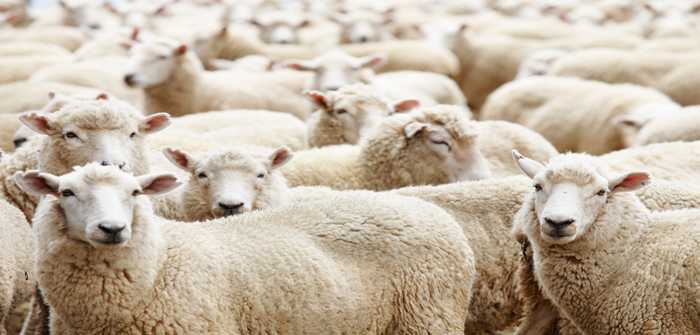A multinational team of researchers have been awarded €2 million from the EU Horizon 2020 network to share knowledge and improve uptake of new digital technologies which will help to increase the efficiency and sustainability of small ruminant farming systems in Europe and beyond.
The new EU-funded project named Sm@RT (Small Ruminant Technologies) will bring together a network of researchers from across Europe who will improve awareness amongst those working in the farming industry of newly available PLF tools, demonstrating their potential and possible return of investment. The network will engage with a wide range of sheep and goat farming systems across the continent.
The project will use a variety of methods to facilitate productive knowledge exchange within the European small ruminant community, working with a wide range of stakeholders including those operating well-equipped demonstration farms (‘digifarms’) and innovative commercial farms.
By drawing upon the valuable input and knowledge of farmers and passing it on to their peers, the hope is that it will increase uptake of PLF tools across the industry.
Sm@RT aims to use a step-by-step approach to ensure that the correct people are involved at the right stage to allow discussion and the exchange of ideas in a trusting environment. It is also intended to use these discussions to motivate IT companies to develop further practical digital solutions for the sheep and goat sector.
Dr Claire Morgan-Davies, project coordinator for Sm@RT, based at Scotland’s Rural College (SRUC), said: “I’m pleased that we have been successful in obtaining this funding to work closely with farmers and stakeholders throughout the food value chain to increase the awareness of new tools which can help farmers to have efficient livestock production.”
Dr Fiona Kenyon, from Moredun Research Institute, added: “We’re delighted to be part of this European project focussing on the potential of precision livestock tools in small ruminant farming. This project will deliver practical information from the ‘digifarms’ and commercial farmers that will be helpful to farmers throughout the UK and Europe.”


